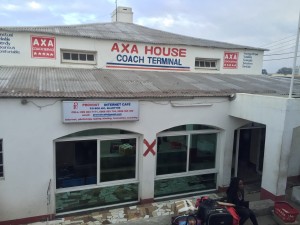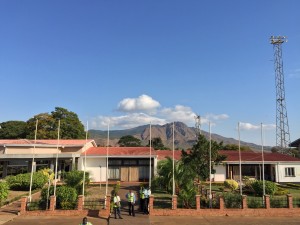Hello again from the Axa bus!
Last time around, I mentioned adjusting to a new culture and finding a little bit home away from home. I mentioned that this internship extends past the design kitchen. It’s not just about engineering and design. It’s about appreciating a different way of life and thinking. In order to give you a full picture of what I mean, it’ll help for me to show you my team and our home for the next two months.
My team consists of four of us from Rice (Christine, Leah, Theresa, and myself) and four from Malawi’s Polytechnic (Brighton, Harvey, Kate, and Vincent). This year, along with working together, we’ll also be living together.
Our first night together, Brighton and the rest taught us a Malawian card game (called “knock”? – I’m still trying to figure out the exact name). It’s similar to Uno, and winning depends a fair amount of luck and skill. (Theresa somehow ended up winning most rounds. Maybe she had a few extra cards up her sleeve?)
Along with cards, it looks like Brighton plays a mean game of chess, and he agreed to bring his chess board next time he visits home. I don’t know if I have a chance against him, but I’m gonna give it a shot anyway.
Harvey and I went running, and my cramps, sore muscles, and searing lungs reminded me why putting off running for more than a few days was a bad idea. I’ll need to start running every day if I’m going get back into any kind of shape.
Vincent and I are rooming together, and I’ve found a kindred spirit in him. It does me good to know that there’s someone else out there as bad at cooking as yours truly, but that’s alright. We’ll learn together (I have feeling Vincent’s more of a chef than he lets on).
Speaking of cooking, we’ve traded off cooking for the last few nights. We’ll probably end up cooking together one of these nights, but we’re eager to try each other’s respective local dishes. We made pasta a few nights back, and last night, Vincent and the rest shared a savory beef dish with us. We’re going to try cooking nsima, a local staple food.
That’s our life at home. We’re all learning, adjusting to one another, and beginning to understand each other.

